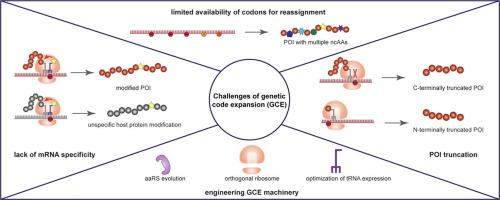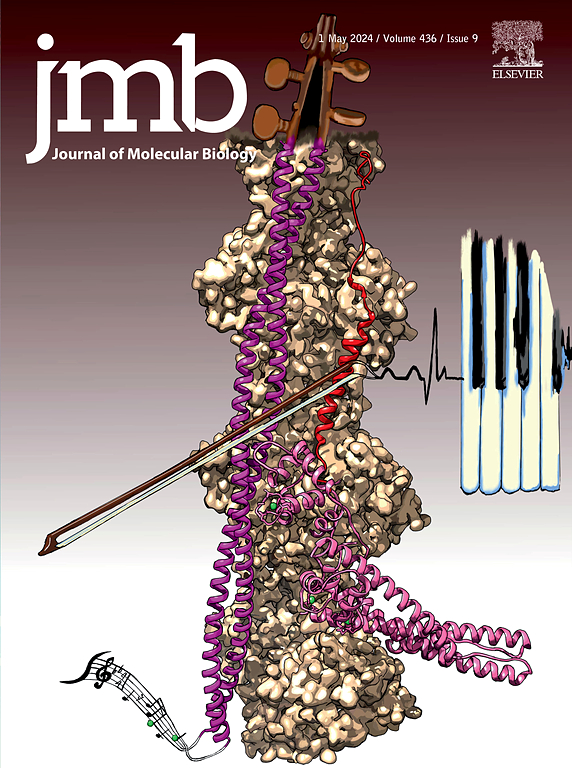Potential vs Challenges of Expanding the Protein Universe With Genetic Code Expansion in Eukaryotic Cells
IF 4.7
2区 生物学
Q1 BIOCHEMISTRY & MOLECULAR BIOLOGY
引用次数: 0
Abstract
Following decades of innovation and perfecting, genetic code expansion has become a powerful tool for in vivo protein modification. Some of the major hurdles that had to be overcome include suboptimal performance of GCE-specific translational components in host systems, competing cellular processes, unspecific modification of the host proteome and limited availability of codons for reassignment. Although strategies have been developed to overcome these challenges, there is critical need for further advances. Here we discuss the current state-of-the-art in genetic code expansion technology and the issues that still need to be addressed to unleash the full potential of this method in eukaryotic cells.

真核细胞中遗传密码扩展蛋白质宇宙的潜力与挑战。
经过数十年的创新和完善,遗传密码扩增已成为体内蛋白质修饰的有力工具。必须克服的一些主要障碍包括:GCE特异性翻译元件在宿主系统中的性能不理想、竞争性细胞过程、宿主蛋白质组的非特异性修饰以及可用于重新分配的密码子有限。虽然已经开发出了克服挑战的策略,但仍亟需进一步改进。在此,我们将讨论遗传密码扩增技术的最新进展,以及要充分释放这种方法在真核细胞中的潜力仍需解决的问题。
本文章由计算机程序翻译,如有差异,请以英文原文为准。
求助全文
约1分钟内获得全文
求助全文
来源期刊

Journal of Molecular Biology
生物-生化与分子生物学
CiteScore
11.30
自引率
1.80%
发文量
412
审稿时长
28 days
期刊介绍:
Journal of Molecular Biology (JMB) provides high quality, comprehensive and broad coverage in all areas of molecular biology. The journal publishes original scientific research papers that provide mechanistic and functional insights and report a significant advance to the field. The journal encourages the submission of multidisciplinary studies that use complementary experimental and computational approaches to address challenging biological questions.
Research areas include but are not limited to: Biomolecular interactions, signaling networks, systems biology; Cell cycle, cell growth, cell differentiation; Cell death, autophagy; Cell signaling and regulation; Chemical biology; Computational biology, in combination with experimental studies; DNA replication, repair, and recombination; Development, regenerative biology, mechanistic and functional studies of stem cells; Epigenetics, chromatin structure and function; Gene expression; Membrane processes, cell surface proteins and cell-cell interactions; Methodological advances, both experimental and theoretical, including databases; Microbiology, virology, and interactions with the host or environment; Microbiota mechanistic and functional studies; Nuclear organization; Post-translational modifications, proteomics; Processing and function of biologically important macromolecules and complexes; Molecular basis of disease; RNA processing, structure and functions of non-coding RNAs, transcription; Sorting, spatiotemporal organization, trafficking; Structural biology; Synthetic biology; Translation, protein folding, chaperones, protein degradation and quality control.
 求助内容:
求助内容: 应助结果提醒方式:
应助结果提醒方式:


